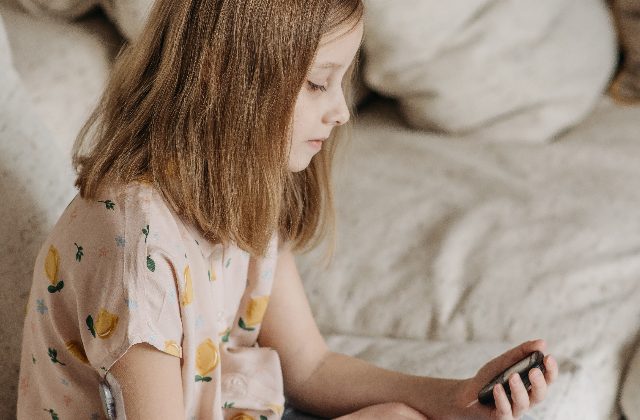
HAVE I EMOTIONALLY DAMAGED MY CHILD – One of the most immensely rewarding things in life is parenting but the journey is a challenging one filled with emotions. There is that natural inclination to worry about the well-being of your child and whether you are doing everything to support them. You assess yourself on how you are doing as a parent and so many questions come up, like, am I a good parent? Am I doing enough? Have I emotionally damaged my child?

These are daunting thoughts but it is important to face them head-on and explore the possible reasons behind them. ‘Have I emotionally damaged my child?’ is one question that can leave you wondering about your capabilities as a parent but fears not as some parents unintentionally cause emotional harm to their children. This can be due to childhood experiences that have a profound impact on a person’s mental and emotional health, and as a parent, you play a crucial role in shaping your child’s development.
In this article, I will explore the signs that indicate your child is suffering from emotional damage, the possible reasons behind it, and how you can begin to heal the wounds and repair the relationship.
Have I Emotionally Damaged My Child?
Children can be emotionally damaged in many ways, including experiencing neglect, abuse, or trauma, witnessing conflict between parents or other family members, experiencing frequent changes in their living arrangements or caretakers, being exposed to substance abuse or other harmful behaviors, and feeling unsupported or unloved.
It is important to reflect on your actions and interactions with your child if you are asking yourself questions like, ‘have I emotionally damaged my child?’ Consider whether you have provided your child with a safe and stable home environment, whether you have been attentive to your child’s emotional needs and provided them with the support and love they need, and whether you have been a positive role model for your child.
Understanding Whether Have I Emotionally Damaged My Child?
One way to answer the question, ‘have I emotionally damaged my child’ is to understand what emotional damage is and how it reflects on your child.
Emotional damage in children can have a significant impact on their overall development and well-being. It can occur in a variety of ways, including neglect, abuse, and exposure to traumatic events and children who experience this may exhibit a range of symptoms, including anxiety, depression, anger, aggression, and social withdrawal. They may also struggle with relationships and have difficulty trusting others.
As a parent, there is a need to understand that emotional damage can have long-term effects on a child’s mental health and may lead to issues such as substance abuse, self-harm, and suicidal thoughts. Therefore, it is crucial to address emotional damage in children as soon as possible.
Treatment for emotional damage may involve therapy, counseling, and other forms of mental health support. It is also important to create a safe and supportive environment for the child, with positive role models and opportunities for healthy emotional expression. To prevent emotional damage, parents and caregivers need to be attentive to the emotional needs of children, provide a stable and nurturing home environment, and seek help when needed. Early intervention can make a significant difference in the long-term mental health and well-being of children who have experienced or are experiencing emotional damage.
Signs That Have I Emotionally Damaged My Child.
Parents need to keep in mind that emotional damage can occur in so many ways, and it is not always intentional. If as a parent, you are wondering, ‘have I emotionally damaged my child,’ it is imperative you seek help and support.
These are some signs to look out for that may indicate emotional damage in your child:
- Withdrawal: Your child may become withdrawn and avoid social interactions,
- Anxiety and depression: You might notice signs of anxiety and depression in your child, such as feeling sad or hopeless, loss of interest in activities they used to enjoy, or feeling excessively worried.
- Behavioral problems: Your child may exhibit behavioral problems such as aggression, tantrums, or difficulty controlling their emotions.
- Sleep disturbances: Your child may have trouble sleeping, experience nightmares, or have difficulty falling asleep.
- Eating disorders: A change in eating habits like refusing to eat or overeating or developing eating disorders can also be a sign.
- Self-harm: Engaging in self-harm behaviors such as cutting or burning themselves.
- Substance abuse: Your child may turn towards alcohol as a way to cope with emotional pain.
If you notice any of these signs, it is important to seek professional help, a mental health professional can provide support and guidance in helping your child heal and recover from any emotional damage they may have experienced. It is also important to create a safe and supportive environment for your child and to seek out resources and support for yourself as well.

Have I Emotionally Damaged My Child? What Might Be The Cause?
There are so many reasons why your child might be emotionally damaged:
- Abuse: Physical, sexual, or emotional abuse can cause significant emotional damage in children.
- Neglect: Failing to meet a child’s basic needs. Such as love, attention, and support can also cause emotional damage.
- Parental conflict: Ongoing conflict between parents, such as arguing or fighting, can cause children to feel anxious, scared, or insecure.
- Divorce or separation: Divorce or separation can be traumatic for children, particularly if there is a conflict between the parents.
- Chronic stress: Chronic stress, such as financial difficulties, substance abuse, or mental illness, can create an unstable environment for a child and cause emotional damage.
- Traumatic events: Exposure to traumatic events, such as natural disasters, accidents, or violence, can cause emotional damage in children.
- Bullying: Bullying at school or online can cause emotional damage and low self-esteem in children.
- Unrealistic expectations: Placing unrealistic expectations on a child can create a sense of failure and low self-esteem, leading to emotional damage.
- Genetic factors: Certain genetic factors may increase a child’s susceptibility to emotional damage, such as a predisposition to anxiety or depression.
Note that, emotional damage can result from a combination of these factors and can manifest in different ways depending on the child’s personality, environment, and experiences.
How To Work Out And Support An Emotionally Damaged Child
Finding out you have an emotionally damaged child can be quite heartbreaking and as a parent, the next step to take is how to support and help them which can be a long and difficult process.
Here are some things to consider that can help your child heal and grow:
Build trust: A child that is emotionally damaged will have a hard time trusting others, including you the parent. It is essential you work on building trust between you and your child, this can bring you closer to the child and help in making them feel safe and secure. Gain their trust by showing them you can be reliable and consistent in your interactions with them.
Follow through on promises, be honest, listen to their feelings and thoughts without judgment, encourage them to share their experiences with you, validate their emotions; let them know they can be heard by you, and give them time and space when they need it. If you want to show care and support, show them empathy by understanding their experiences. Building trust with an emotionally damaged child takes time, so be patient. Take it one day at a time.
Create a safe environment:
A safe environment is important for healing. Basic needs such as food, shelter, and clothing should be met. Let their environment be safe for them to express their emotions without fear of judgment or punishment. Communicate clear boundaries that are flexible and understanding so they know what is expected of them. Let them know they can come to you at any time. Be aware of triggers and avoid situations that can be overwhelming. Create a plan on how to manage triggers if they do occur. You can do this by providing a quiet space where your child can go to calm down when they are feeling overwhelmed
Validate their feelings:
It is important to validate your child’s feelings and let them know what they are feeling is okay. No matter how uncomfortable the feelings may be, acknowledge and accept them. Let them know their emotions are real. Put yourself in their shoes and try to understand their perspective. Reflect on their feelings to them to show that you are listening and avoid judgment, this can make them withdraw and avoid being open with you. Encourage them to express their feelings in a way that feels comfortable to them, either through drawing, writing, or any other creative outlet. Always offer support and validation and reassure them that they are not alone.
Be patient:
healing from emotional trauma takes time. Be patient and don’t rush the process. Allow them to go at their own pace and provide support and encouragement along the way.
Seek professional help:
Consider seeking the help of a mental health professional who is trained in working with children who have experienced emotional trauma. They can provide specialized support and guidance to help your child heal and grow.
Practice self-care:
Caring for an emotionally damaged child can be emotionally draining. Take care of yourself and seek support from others as needed.
Remember, every child is different, and what works for one child might now work for another. Be flexible and tailor your support to every child’s needs.
How To Prevent Emotional Damage In Children
Creating a safe, supportive, and nurturing environment for your child to grow and thrive goes a long way in preventing emotional damage.
Some strategies that can help in preventing emotional damage are:
- Show love and affection: It is important to show your child love and affection regularly. Hugging, kissing, and telling them you love them can help them feel secure and build their self-esteem.
- Communicate effectively: communication is key in any relationship. Talk to your child in a way that they can understand, and listen to them when they speak to you. Encourage them to express their feelings and validate their emotions.
- Set healthy boundaries: setting boundaries teaches children about limits and helps them understand that certain behaviors are not acceptable. It is important to be consistent and firm when enforcing boundaries.
- Create a safe environment: children need to feel safe in their environment to thrive emotionally. Ensure that your child’s physical and emotional needs are met and that they feel safe and secure at home.
- Avoid exposing children to adult issues: children should not be exposed to adult issues such as financial problems, marital conflicts, or other stressors. Shield them from these problems and provide a stable and calm environment.
- Be a positive role model: children learn by example. Be a positive role model and demonstrate positive behaviors and values. This will help your child develop a strong sense of positive self-esteem.
- Encourage social interaction: children need to interact with other children to develop social skills and build friendships. Encourage your child to participate in social activities such as playdates or sports teams.
Every child is unique and may require different approaches to prevent emotional damage. Be attentive to your child’s needs and seek professional help if you are concerned about their well-being.
Final Thoughts
In conclusion, recognizing and answering the question, ‘have I emotionally damaged my child?’ can be difficult but it is important to take responsibility for your actions and make a conscious effort to repair the damage. With patience, communication, and a commitment to change, it is possible to help your child heal grow, be happy and build stronger, healthier relationships moving forward.
Remember, seeking the help of a professional therapist can also provide valuable support and guidance in navigating these challenging situations.
Leave a Reply
You must be logged in to post a comment.